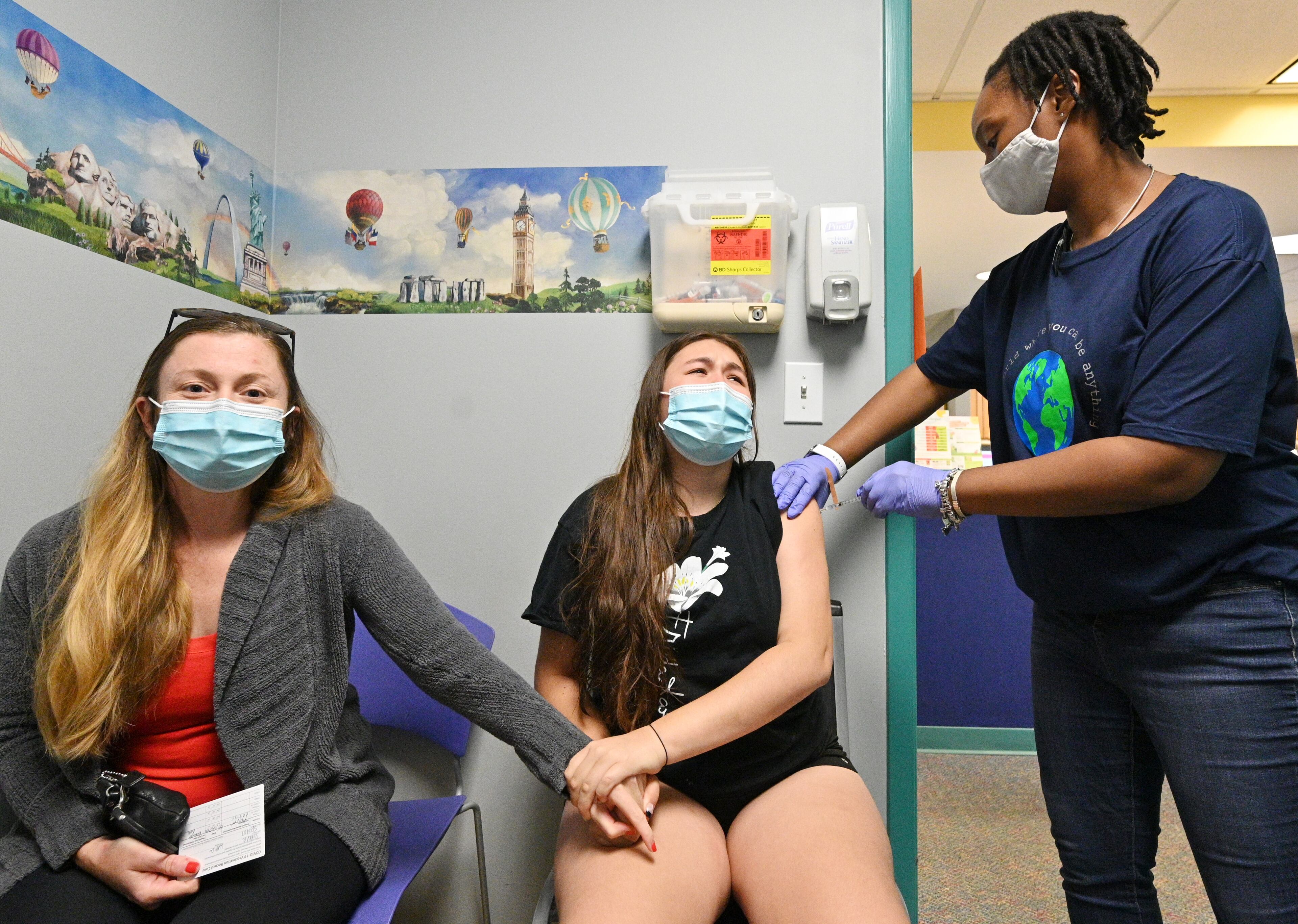A look at major COVID-19 developments over the past week

The vaccine is working, and Georgians are tearing off the shackles of the pandemic.
Seats at restaurants and sporting events are filling up again. Public buildings are dropping masking and social distancing requirements. Demand for children’s summer camps is surging. Memorial Day weekend promises heavy traffic and long security lines at the airport.
The receding crisis also has Georgia Gov. Brian Kemp playing to his conservative base by announcing prohibitions on public schools requiring masks and a state ban on so-called “vaccine passports” — which anti-vaxxers have railed against as a means of population control.
Meanwhile, the portion of the population actually taking vaccines is still too small to declare victory, with the pace of shots slowing down.
About 46.1% of eligible people in Georgia (those 12 and up) have received at least one dose of a vaccine, according to data published Friday morning by the Centers for Disease Control and Prevention. That translates into about 39% of the total population of Georgia.
Some parts of the state lag worse than others. Chattahoochee County, near Columbus, reports only 12% of residents have received at least one dose, state data show. Long and Liberty counties, near Savannah, report 12% and 16% of residents with at least one dose, respectively.
Here’s a look at major developments related to COVID-19 over the past week:

COVID-19 hospitalizations drop dramatically
With new coronavirus cases falling to levels not seen since almost a year ago, hospital workers who were pushed to the brink are now catching their breaths.
In the darkest days of the winter surge, the number of confirmed COVID-19 patients at the Northeast Georgia Health System soared to 355. Last week, the figure at the system’s four hospital campuses had plummeted to 23.
“I feel like I should knock on wood,” said Dr. John Delzell, the hospital’s vice president of medical education and leader of its incident command center.
At times in January, greater than one out of three patients in Georgia hospitals suffered from COVID-19. Some hospital districts ran out of intensive care beds.
But, as people in Georgia started getting vaccinated, the numbers of those with severe COVID-19 steadily declined. On Wednesday, COVID-19 patients made up about 5% of those hospitalized in Georgia — or one out of 20 people.

Kemp bans Georgia from requiring ‘vaccine passports’
In a move aimed at shoring up conservative support ahead of a tough reelection bid — and criticized as possibly emboldening the anti-vaccine movement — Gov. Kemp signed an executive order Tuesday that bans the state government from requiring proof of vaccination against the coronavirus.
Georgia joins other Republican-led states in restricting the use of so-called “vaccine passports.” The governor’s order applies to state agencies, state service providers and state properties.
“While I continue to urge all Georgians to get vaccinated so we continue our momentum of putting the COVID-19 pandemic in the rearview, vaccination is a personal decision between each citizen and a medical professional — not the state government,” Kemp said in a statement.
The order doesn’t extend to private businesses or organizations. But the rules do include K-12 public schools and Georgia’s higher education system, along with state correctional facilities, a Kemp spokesman said.

Governor also restricts public schools from requiring masks
The day after signing the “vaccine passports” order, Kemp railed against “pandemic politics” during an appearance on Fox News and disclosed plans for an executive order that would restrict public schools from requiring students, staffers and teachers to wear masks.
The announcement drew immediate backlash from some Democrats and school officials who worried about the threat of new outbreaks when students return in the fall.
Kids under 12 years old aren’t yet eligible for vaccines, and only a small number of Georgia teenagers have been inoculated. Kemp pointed out that teachers can get vaccinated, and his order won’t prevent anyone from wearing a mask who chooses to.
His announcement prompted six Cobb County parents who sued the school district over mask requirements for students in classrooms to drop their lawsuit, according to their attorneys.
Kemp signed off on the measure Friday as part of an executive order eliminating all remaining pandemic rules for restaurants, bars, conventions, childcare facilities, live performance venues and other organizations.

When wages rise, labor shortages end, say some local businesses
The post-pandemic recovery has seen a shortage of workers from poultry plants to hospitals to restaurants. Millions of jobs were cut early in the pandemic. Now, as Americans get vaccinated, businesses are racing to rehire.
States like Georgia have coped with labor shortages using a stick: cutting unemployment benefits to push workers off the sideline. A growing number of local companies are using a carrot: raising wages to lure people back to jobs.
As his six restaurants started ramping up for a post-pandemic world, Brian Will was struggling to find employees. So, he went with the classic economics response for hard-to-find things. He paid more, raising wages for jobs like dishwasher and hostess from $8 or $10 an hour to $15. And he bumped up pay for those on his staff already at that level.
“We started to get a better quality of applicants,” he said. “And the employees we already had, the ones that we gave raises to, they stepped up their game.”
It is hard to say how many businesses are fighting the shortage with higher pay. But some high-profile retailers and fast-food employers nationally have announced higher pay, including Target, Starbucks, Costco, Walmart, Chipotle and McDonalds.
Staff writers J. Scott Trubey, Helena Oliviero, John Perry, Greg Bluestein, Michael E. Kanell, Arielle Kass, Ty Tagami and Kristal Dixon contributed to this story.

